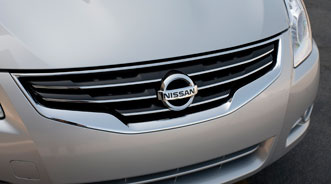Dataium: Japan Disaster & Libyan Crisis Soften Auto Shopper Intensity Index

By subscribing, you agree to receive communications from Auto Remarketing and our partners in accordance with our Privacy Policy. We may share your information with select partners and sponsors who may contact you about their products and services. You may unsubscribe at any time.
NASHVILLE, Tenn. –
Dataium’s latest Auto Shopper Intensity Index shows broad declines in activity for Japanese brands starting immediately after the devastating earthquake and tsunami, and firm analysts say it has continued downward since the March 11 tragedy.
The ASI Index had already seen softening after the Libyan crisis erupted and average gas prices broke $3.45 per gallon, according to Dataium.
When U.S. military force began on the North African nation, analysts indicated domestic brands, as a group, saw the greatest index declines at 7 percent. Dodge and GMC sustained the most significant declines — each with nearly a 17 percent drop in online shopper intensity.
Meanwhile, Dataium found Japanese imports posted gains of around 9 percent when the conflict in Libya ramped up. The firm discovered Honda posted a 25-percent increase for the same time period, likely due to the higher fleet MPG for these makes.
Dataium added all imports were up by 1 percent at that juncture.
These trends shifted dramatically after the Japanese quake, tsunami and nuclear disaster occurred.
Subscribe to Auto Remarketing to stay informed and stay ahead.
By subscribing, you agree to receive communications from Auto Remarketing and our partners in accordance with our Privacy Policy. We may share your information with select partners and sponsors who may contact you about their products and services. You may unsubscribe at any time.
Immediately following these events, Dataium determined Japanese brands posted a 16-percent decline — reversing the earlier gains — while domestic nameplates saw a 13-percent increase in their group’s index reading.
However, analysts emphasized it did not take long for the gravity of the disaster in Japan, continued unrest in the Middle East and rising gas prices to erode the gains first posted by domestic brands.
Adding to the already staggering reversal in consumer behavior, Dataium said Japanese automakers have seen their ASI index decline an additional 13 percent in the weeks following the quake. The firm reiterated that movement comes after posting a 1-percent gain in the 10 days prior to the quake that rocked Japan on March 11.
Instability has not been solely on the Japanese brands. Analysts pointed out domestic brands have lost 1 percent following the quake, compared with a 4-percent decline for the 10 days prior.
Analysts also shared the ASI indexes for both imports and luxury brands have declined nearly 7 percent, and the overall automotive market index is down nearly 5 percent since the quake.
Dataium reiterated that its ASI index aggregates and weighs nearly a dozen different behaviors to determine consumer intensity, motivation and engagement in the automotive market. The firm said it aggregates and measures billions of auto shopper events among millions of active shoppers across a network of diverse websites.
Analysts mentioned the ASI index had made positive gains through February. However after the quake, the readings represented a dramatic reversal in consumer behavior.
The firm again stressed that all automakers are being impacted — however Japanese manufacturers have felt the brunt of the declines in consumer behavior.
“The data we have collected from online auto shopping behavior across the Internet clearly indicates that the automotive market was beginning to soften in response to world events and continued gas price increases prior to the catastrophic events in Japan,” explained Eric Brown, Dataium’s chief executive officer.
“The Japanese nameplates were actually outperforming the domestic brands until the quake,” Brown continued. “After the quake, these trends inverted and the Japanese imports began a significant decline.
“It should be noted, however, that all automotive brands are being impacted by events around the world,” Brown added.
Jason Ezell, president of Dataium, chimed in with, “Typically, trends in the ASI index are reflected in industry sales 45 to 60 days out, as declining auto shopper activity one month translates into fewer sales leads the next, and declining sales volume the next.
“Consequently, there is still time for the consumer to adjust to a changing market, re-enter the market and mitigate expected sales declines,” Ezell concluded.


